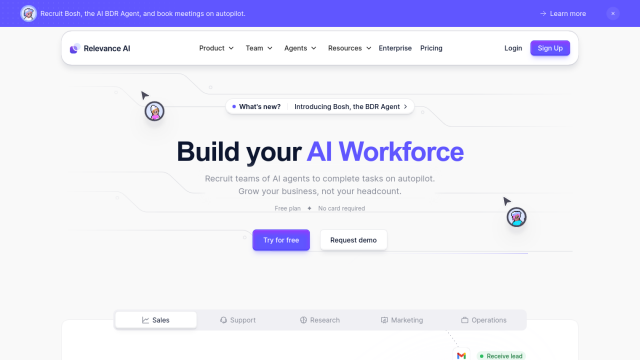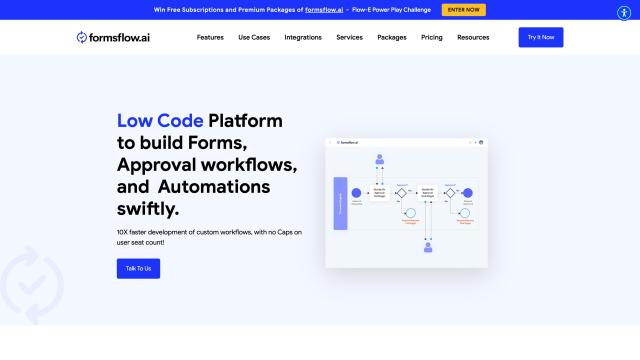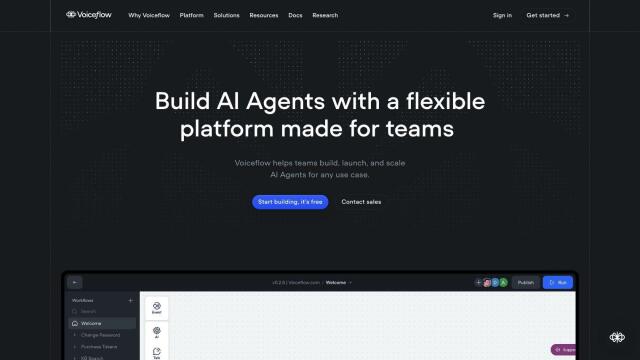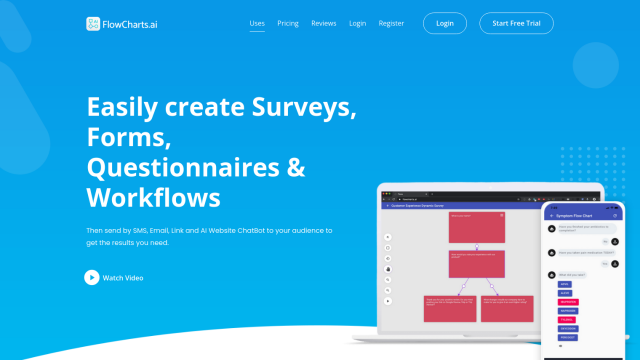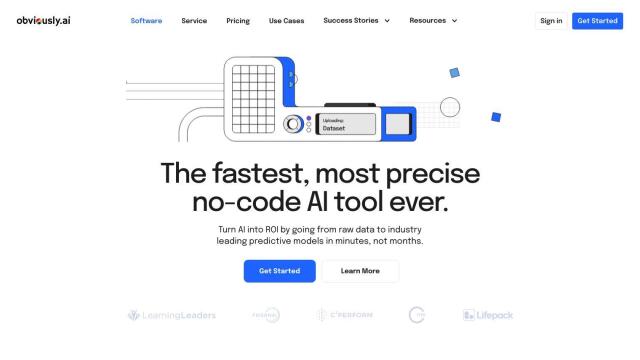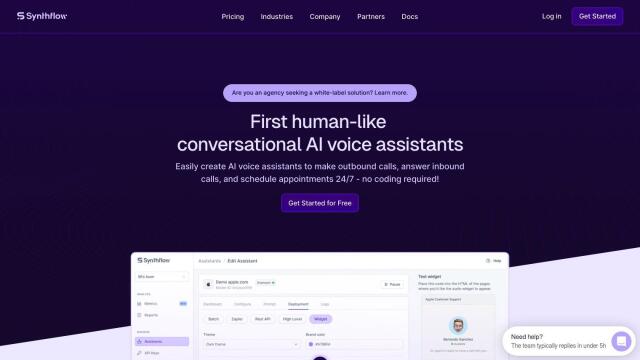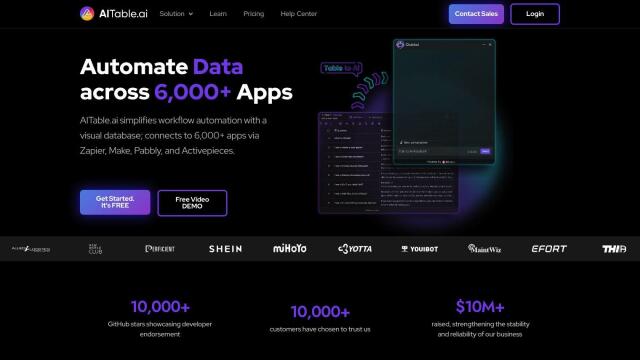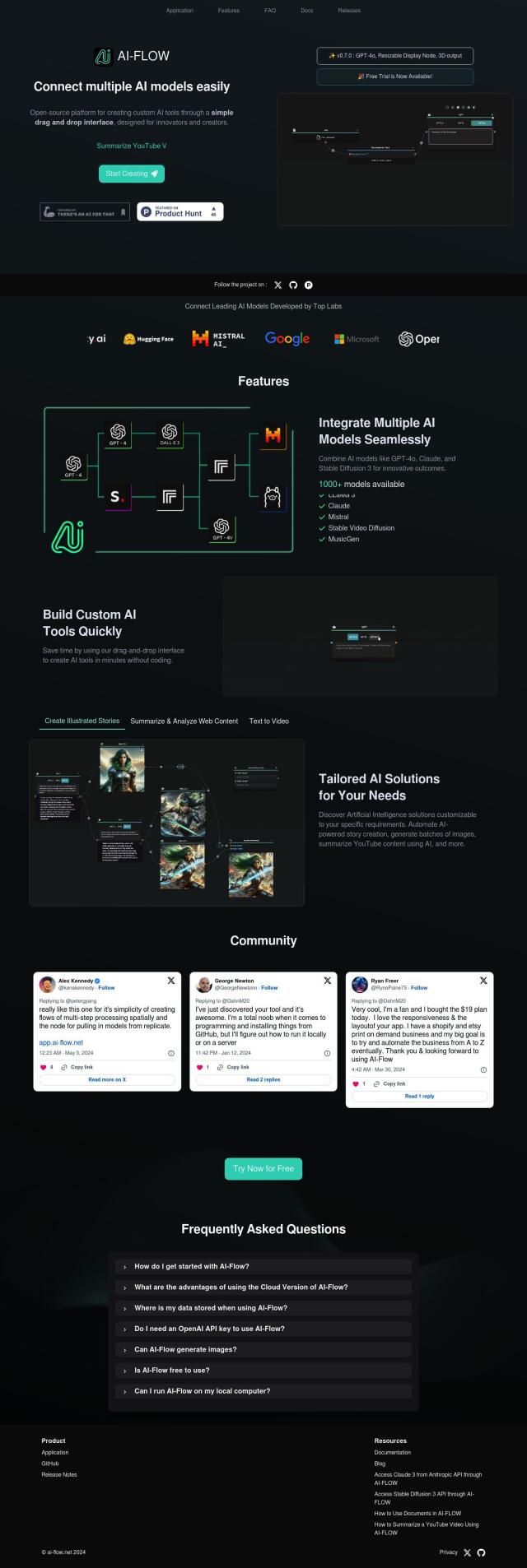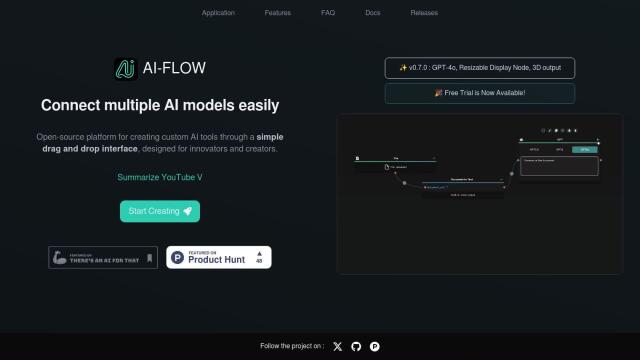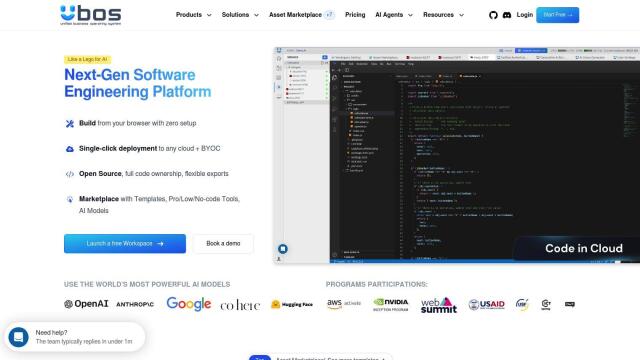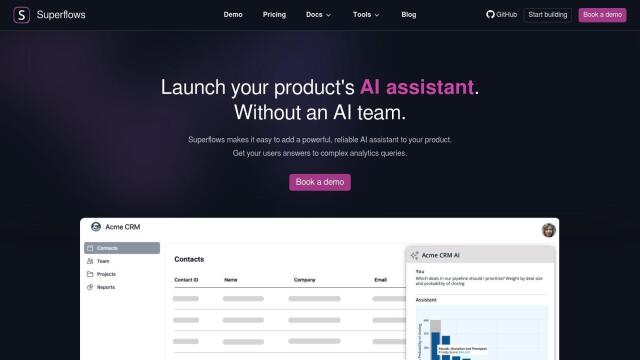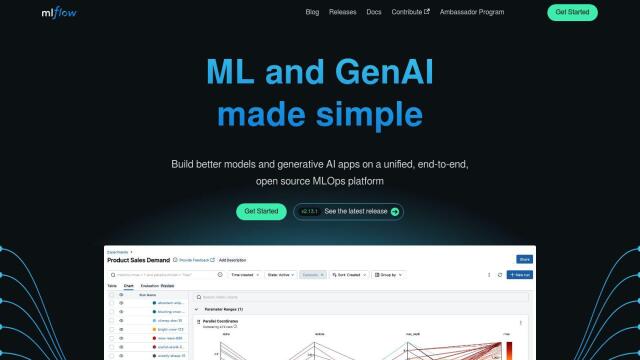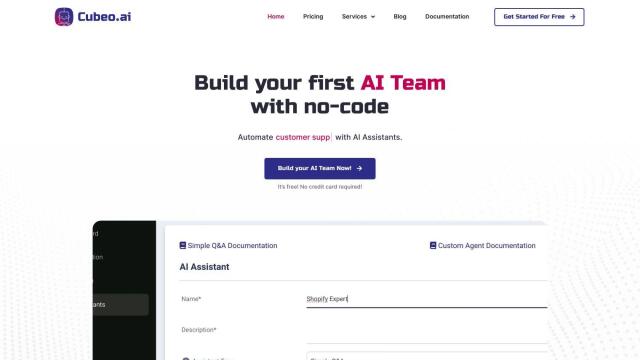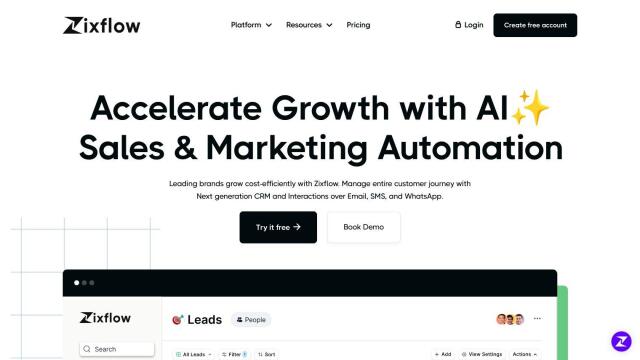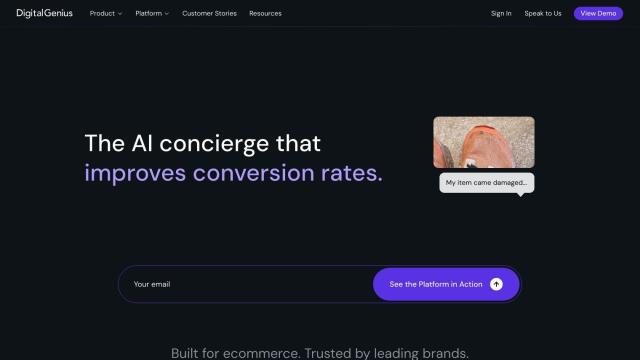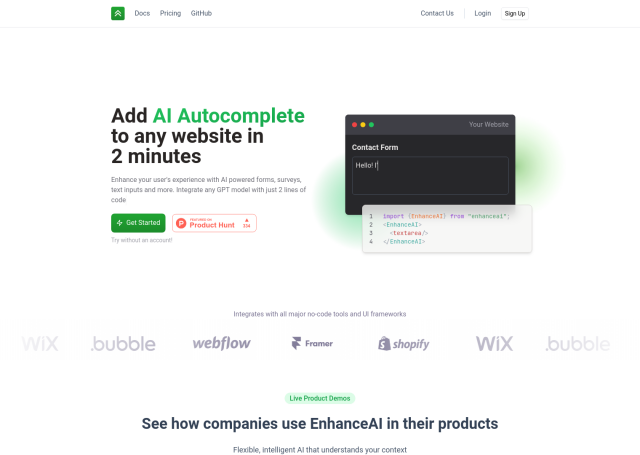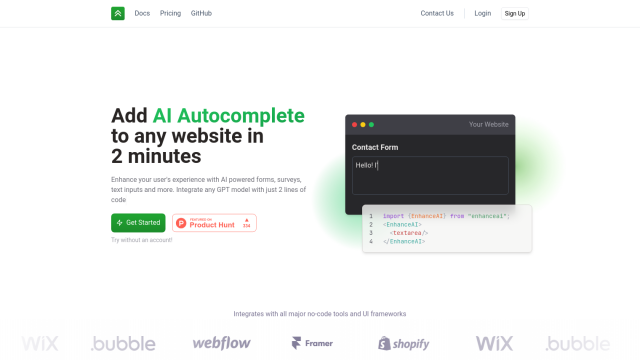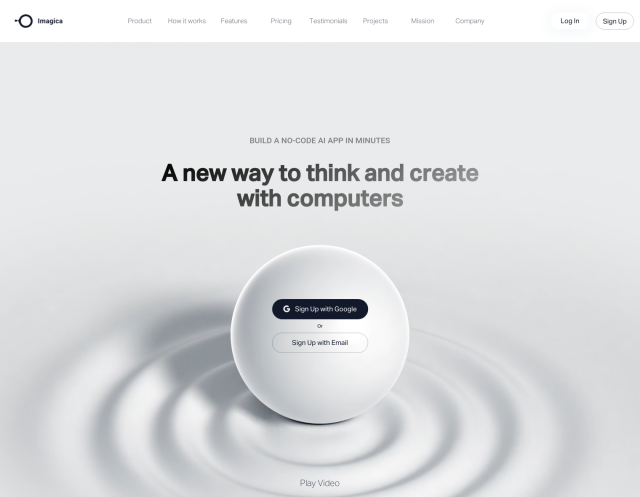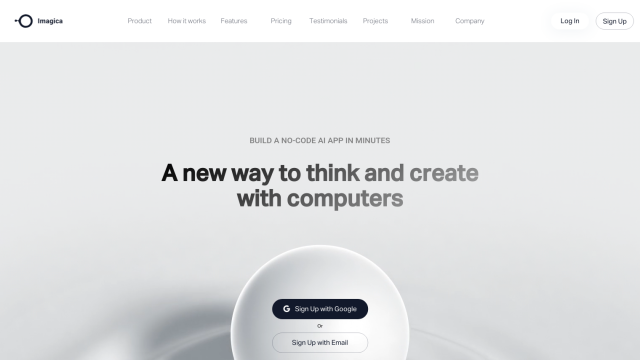Question: Can you recommend a platform that integrates AI flows with web and mobile applications seamlessly?
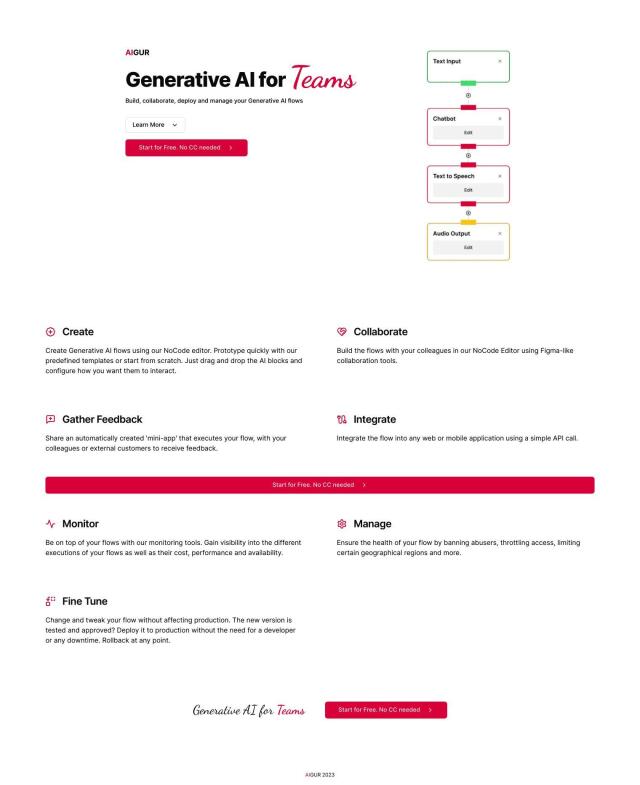
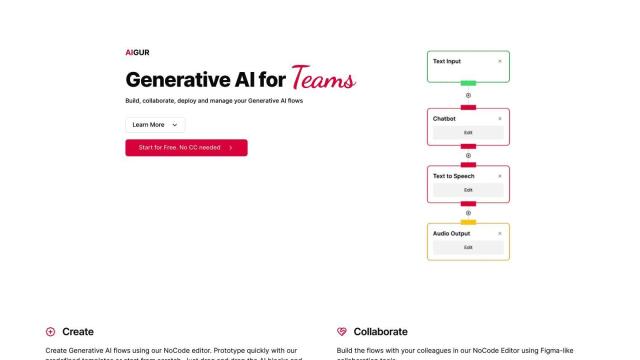
Aigur
If you want to tightly integrate AI flows with web and mobile apps, Aigur is a great option. The platform lets teams design, collaborate and deploy generative AI flows with a NoCode editor that configures flows with drag-and-drop blocks. It has real-time collaboration abilities, feedback gathering with shareable mini-apps, and integration with web and mobile apps with API calls. Aigur also comes with monitoring tools to track flow runs, costs, performance and availability, so it's a good choice for managing AI workflows securely and collaboratively.

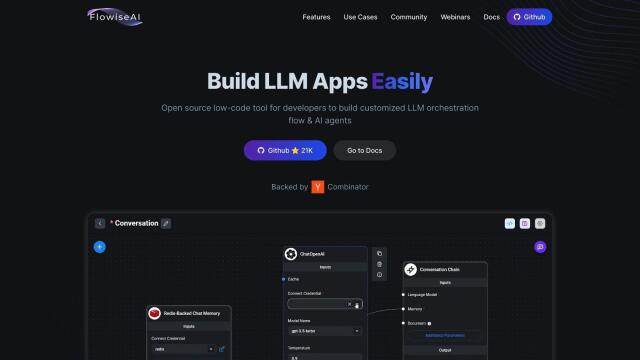
Flowise
Another top contender is Flowise, an open-source low-code tool to create custom Large Language Model (LLM) orchestration flows and AI agents. It has a graphical interface to build sophisticated LLM apps and integrates with more than 100 components, including Langchain and LlamaIndex. Flowise can be self-hosted on AWS, Azure and GCP and can run in air-gapped environments, so it's very flexible for whatever AI development and integration needs you have.

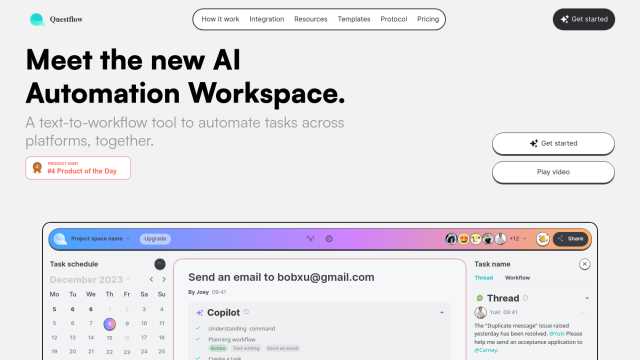
Questflow
If you prefer a text-based interface, Questflow is a collaborative AI automation workspace that uses a text-to-workflow interface. It accepts multi-modal input and has human-in-the-loop abilities to ensure quality. Questflow integrates with more than 50 platforms and can automate a lot of tasks, from email reminders to SEO-optimized blog posts. It's great for boosting productivity and reducing manual labor by automating repetitive tasks.

